Beet sugar vs. cane sugar - how are these sugars that come from two different plants differ. Find out my favorite brand of cane sugar that you can buy even at ALDI.
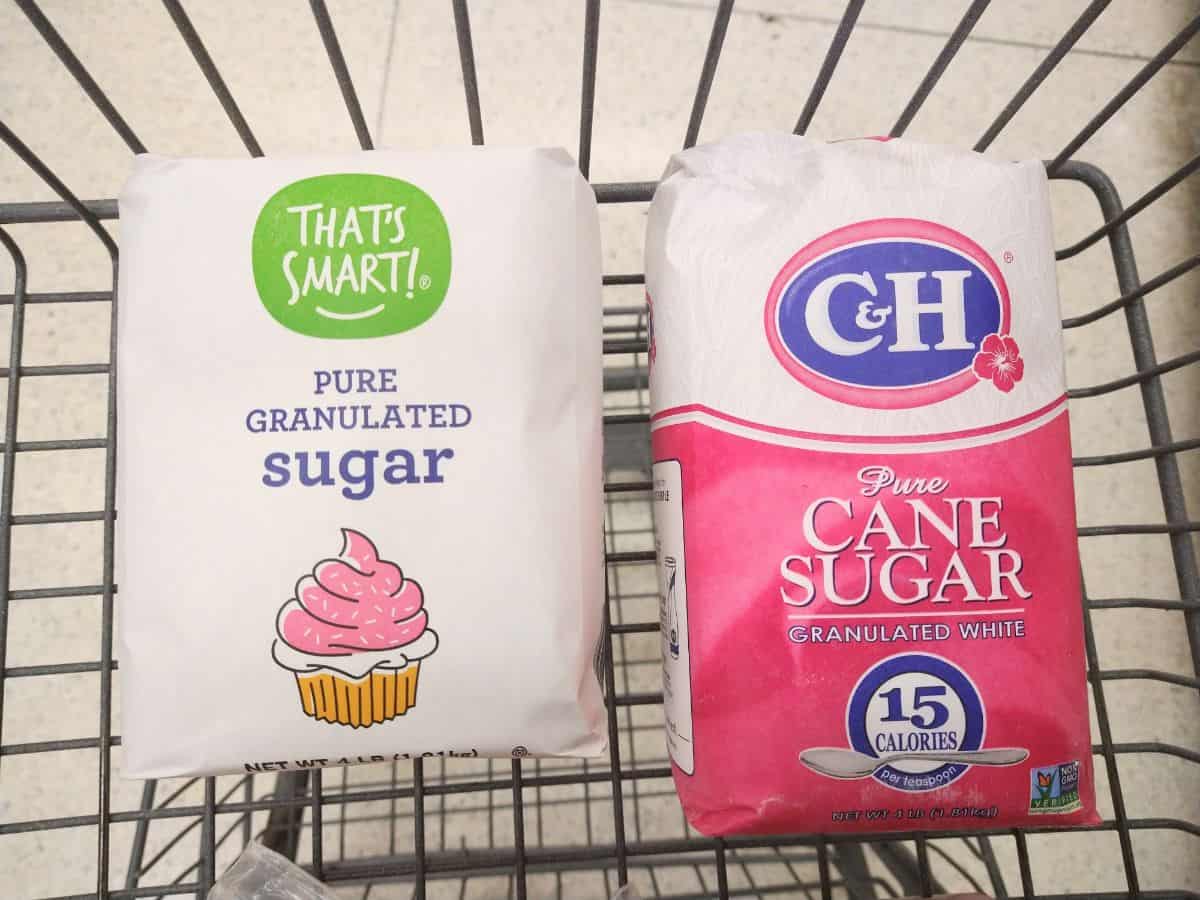
This post includes affiliate links. This means that, at no additional cost to you, I will earn a commission if you click through and make a purchase. These are products and services I recommend because I use or trust them. Cookies will be used to track the affiliate links you click.
I wonder sometimes if much thought goes into sugar. Everyone knows what sugar is.
What I am talking about here is table sugar. Regular old granulated white sugar that has been processed to be squeaky clean.
We use it in everything from our morning cup of Joe to the chocolate ice cream we gorge on while watching Netflix at night. I would say most people just buy the big 5lb generic store brand bag of sugar from the grocery store without a second thought.
How often do you look to see what that sugar is made from. Is it made from from sugar beets? Is it made from sugar cane? What is the difference? Should you even care?
These are questions I am going to answer as we wrap up "What is the Difference" week here at Eat Like No One Else.
Jump to:
❓ What is Beet Sugar?
As we get to each type of sugar I first want to start with how they are made. Understand this and you will begin to understand why it might matter which choice you make at the store.
Beet sugar is grown from beets. The same family as the red beets you see in every grocery store. Those are pretty sweet themselves. The beets grown for sugar are white in color and lack the earthy flavor of the red beet.
Sugar beet plants are grown in temperate climates. They can be grown in northern states that have cold winters.
They are grown commercially in
- California
- Colorado
- Idaho
- Michigan
- Minnesota
- Montana
- Nebraska
- North Dakota
- Oregon
- Washington
- Wyoming
🚜 How is Beet Sugar Made?
Here is a great explanation of how beet sugar is produced from the Sugar Industry Biotech Council.
Beet sugar processing normally is accomplished in one continuous process. During the process, the natural sugar stored in the beet root is separated from the rest of the plant material. The sugar beets are washed, sliced and boiled in water to begin the sugar extraction process. The resulting sugar-containing juice is filtered, concentrated to a thick syrup by boiling where the sugar begins to crystallize, washed with hot water in a rapidly spinning centrifuge to separate sugar and molasses and dried in a series of steps. After sugar and molasses have been recovered from the sugar beet, the remaining pulp is utilized for animal feed.
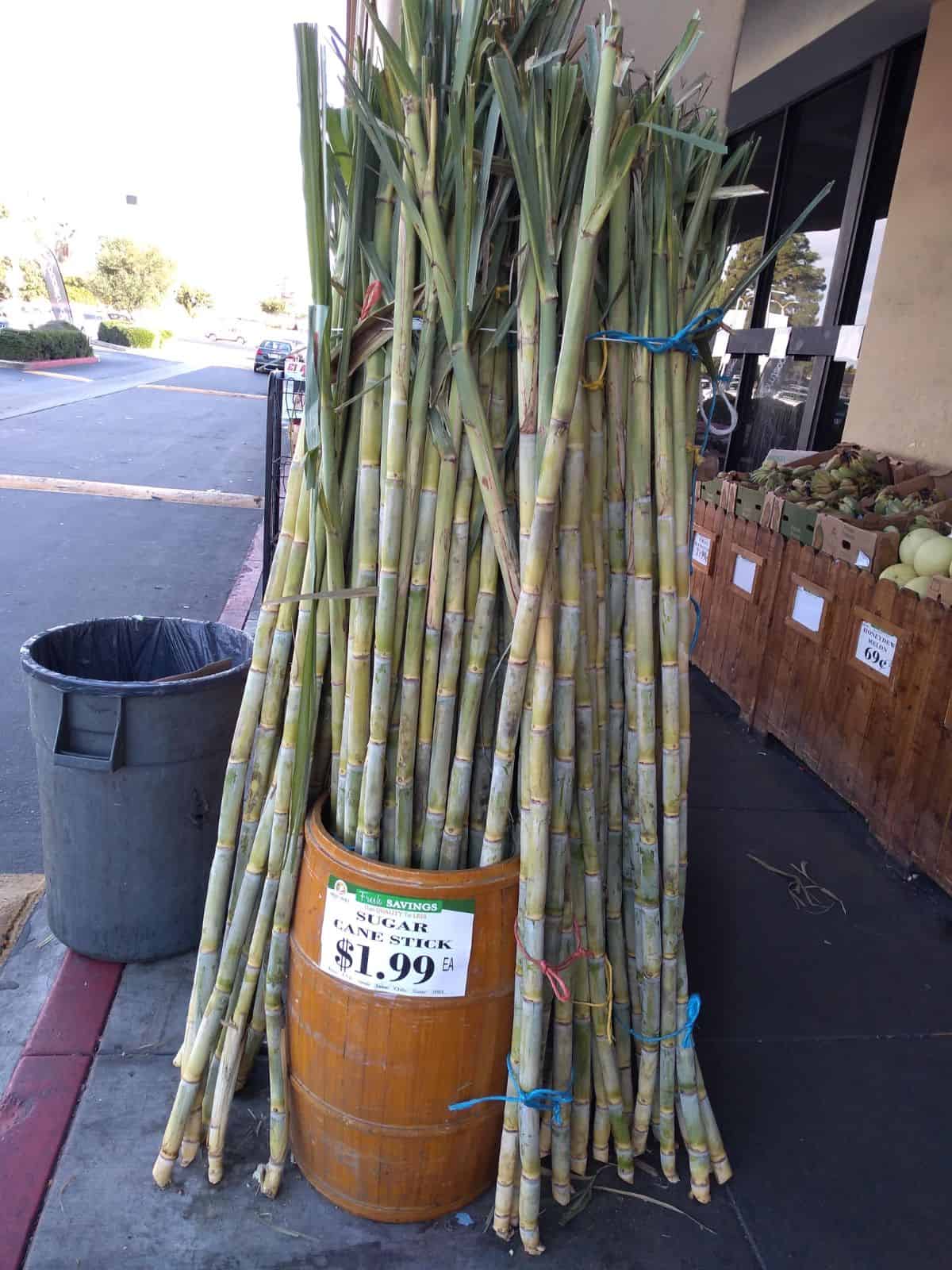
🦯 What is Cane Sugar?
Cane sugar comes from a completely different plant. This plant grows like a stalk. Sort of looks like bamboo. Technically it is a tall growing tropical grass.
Sugar cane can only be grown in more humid and hot tropical climates. In the United States it is only grown in:
- Florida
- Hawaii
- Louisiana
- Texas
Florida is the leader producer.
🌾 How is Cane Sugar Made?
Here is a great explanation of how cane sugar is produced from the Sugar Industry Biotech Council.
During the process, the natural sugar stored in the cane stalk is separated from the rest of the plant material. This separation begins by grinding the cane and boiling it in water to begin the sugar extraction process. The sugar-containing juice is boiled until it thickens into a syrup from which the sugar crystallizes, the crystals are spun in a centrifuge where a portion of the molasses is removed to produce raw sugar, and the raw sugar is traditionally dried before shipment to a refinery. At the refinery, the raw sugar is mixed with water in a rapidly spinning centrifuge to remove the last remaining molasses. The white sugar is then crystallized, dried and packaged.
⚖️ What is the Difference?
The big difference is the plants that produce the sugar and where those plants grow. Cane sugar has a more limited growing area in the United States than beet sugar. When it comes down to taste, there really only a slight difference that most of us probably can't dedicate.
We are talking about two refined sugars. Nutritionally I have not read anyone with convincing arguments that one more nutritious than the other.
I also wanted to point out that you can find whole cut up sugar cane in many stores. I have never seen fresh sugar beets in any store - so you do have that difference.
As for shelf life, both last for a very long time. Unless it gets wet or critters get into it, you won't have to worry your sugar is too old.
🎂 For Baking
I have used both beet sugar and cane sugar in baked goods and have never noticed any real difference. That being said I haven't baked the same recipe with them at the same time. People do say that cane sugar caramelizes better than beet sugar, which means more flavor. I need to test batch some sugar cookies with one using beet sugar and the other cane.
🌻 GMO Issue
Here comes the big but - sugar made from sugar beets can be derived from GMO seed. In fact nearly all of the beet sugar grown in the U.S. today is from GMO seed. If this issue is important to you and you want to buy sugar, stir clear of most beet sugar.
In order to do this you need to only buy sugar that reads "pure cane sugar" on the package.
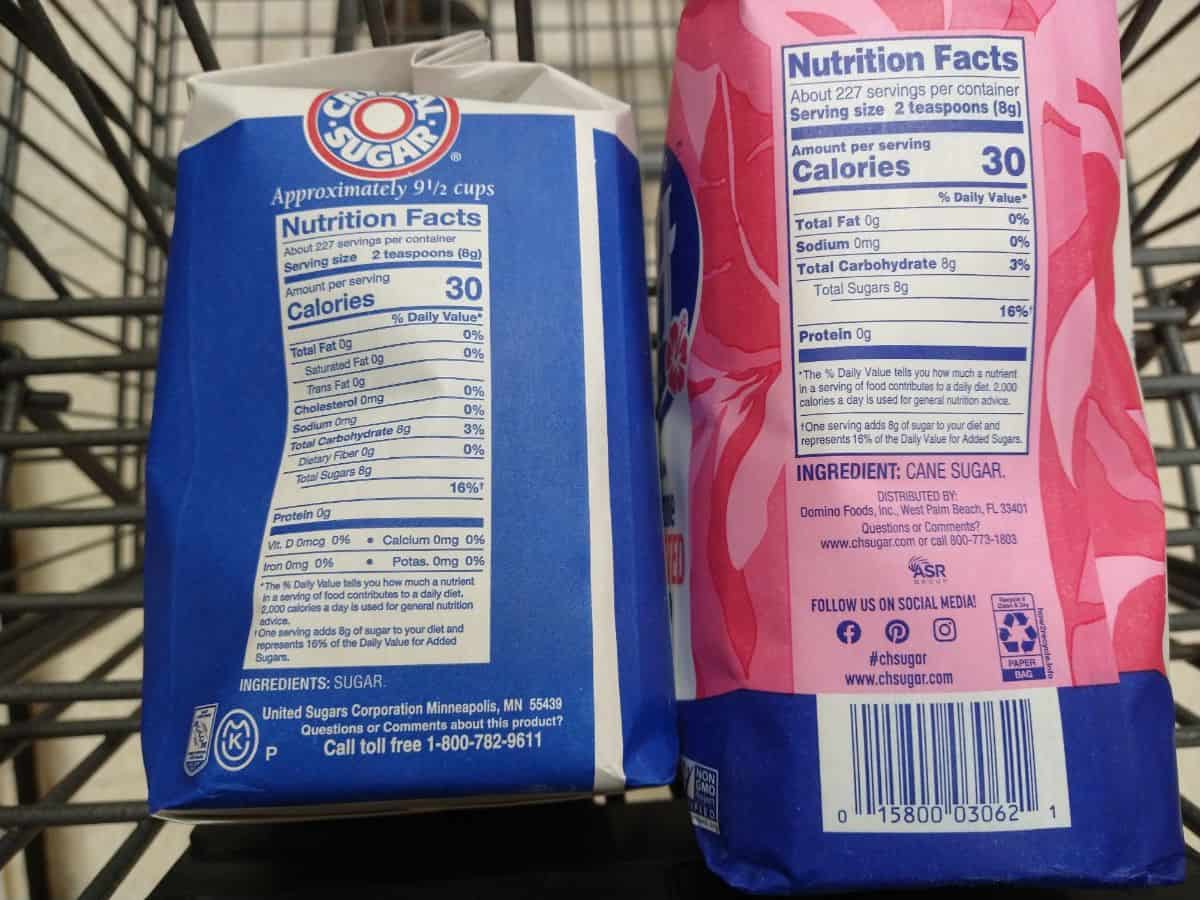
🏷️ What Brands Are Made from Beets?
After searching all the options at several grocery stores, I found none of them had sugar that was labeled beet sugar on the packaging. The only thing getting labeled is the cane sugar. If it doesn't say cane sugar is it almost certain to be beet sugar. Since buying pure cane sugar is now becoming a popular thing, no producer would miss out on marketing their sugar as cane sugar.
❔ Can You Buy Organic Beet Sugar?
One way around the GMO issue is to look for organic beet sugar. Is anyone producing it? I did some searching around and found that NOW Foods offers a 3 pound bag of Organic Beet Sugar. The sugar has been verified by the Non-GMO Project.
👨🌾 Labor Issue
Cane sugar isn't without it's own potential moral issues. Harvesting sugar cane is challenging. It's can be extremely hard on the workers. I have seen documentaries like Netflix's Rotten that show the working conditions and how the workers are treated.
There is also environmental concerns. Rainforests haven been harmed or removed to grow sugar cane.
It's wise to vet your source for cane sugar.
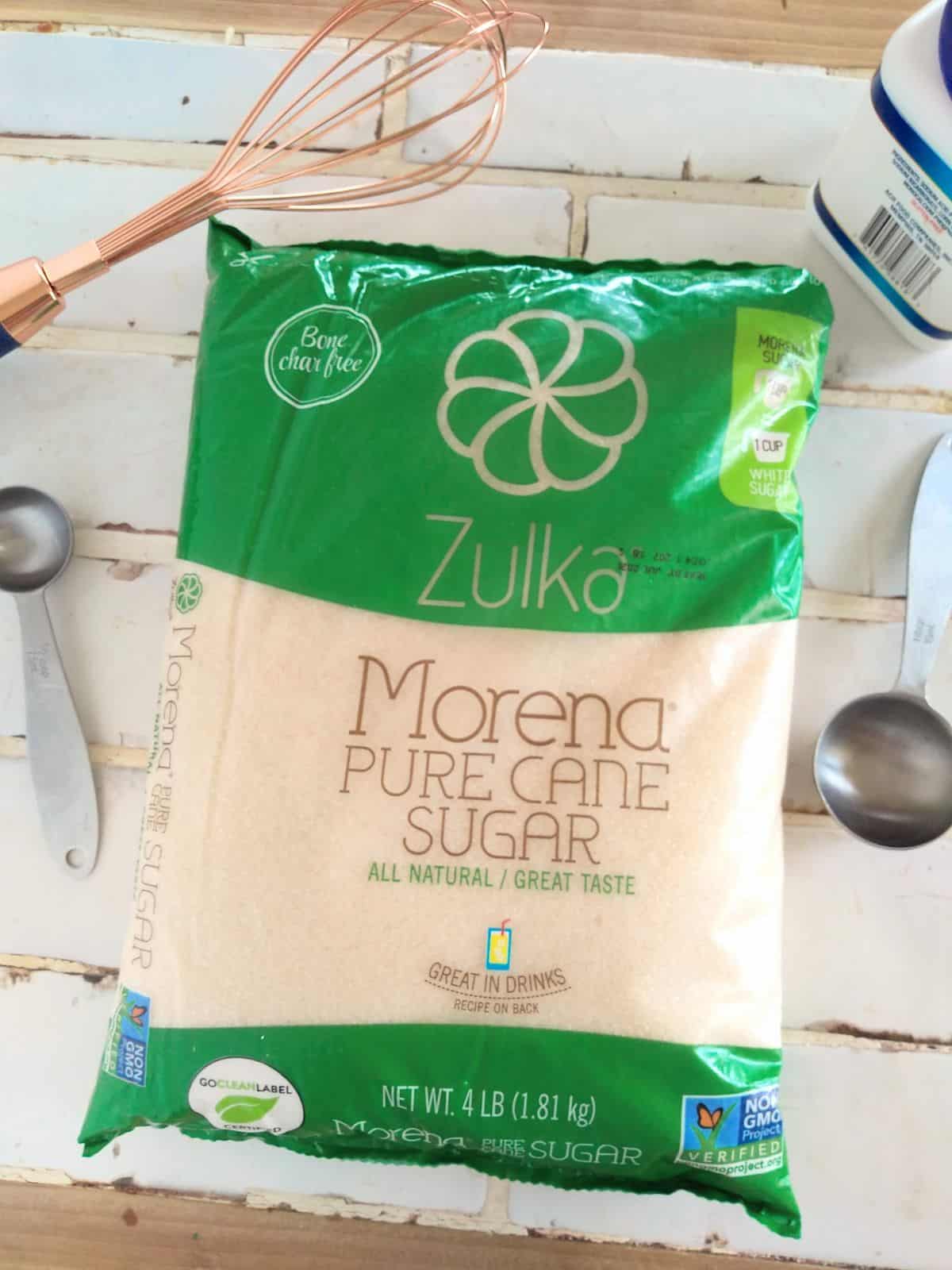
🛒 Which to Buy?
The sugar that I use most often use is Zulka Morena Pure Cane Sugar. Zulka sugar is less refined than most sugars. The sugar crystals do not have that pure white color of most table sugars. The sugar simply tastes better. It has more flavor to it. You can use it the same way you use any granulated sugar. You can order it online (this is an affiliate link). Or you can buy at in several grocery stores like ALDI and Kroger.
I think deciding what sugar to use has to be your convictions. Decide what issues mater to you the most.
🦴 Bone Char
You may have seen this term appear on a bag of sugar before. What does it mean? Bone char is used decolorizing and deashing agent in sugar. It is produced by charring animal bones. Thus if you are vegan you will want to avoid any sugar that contains bone char. Zulka is bone char free.
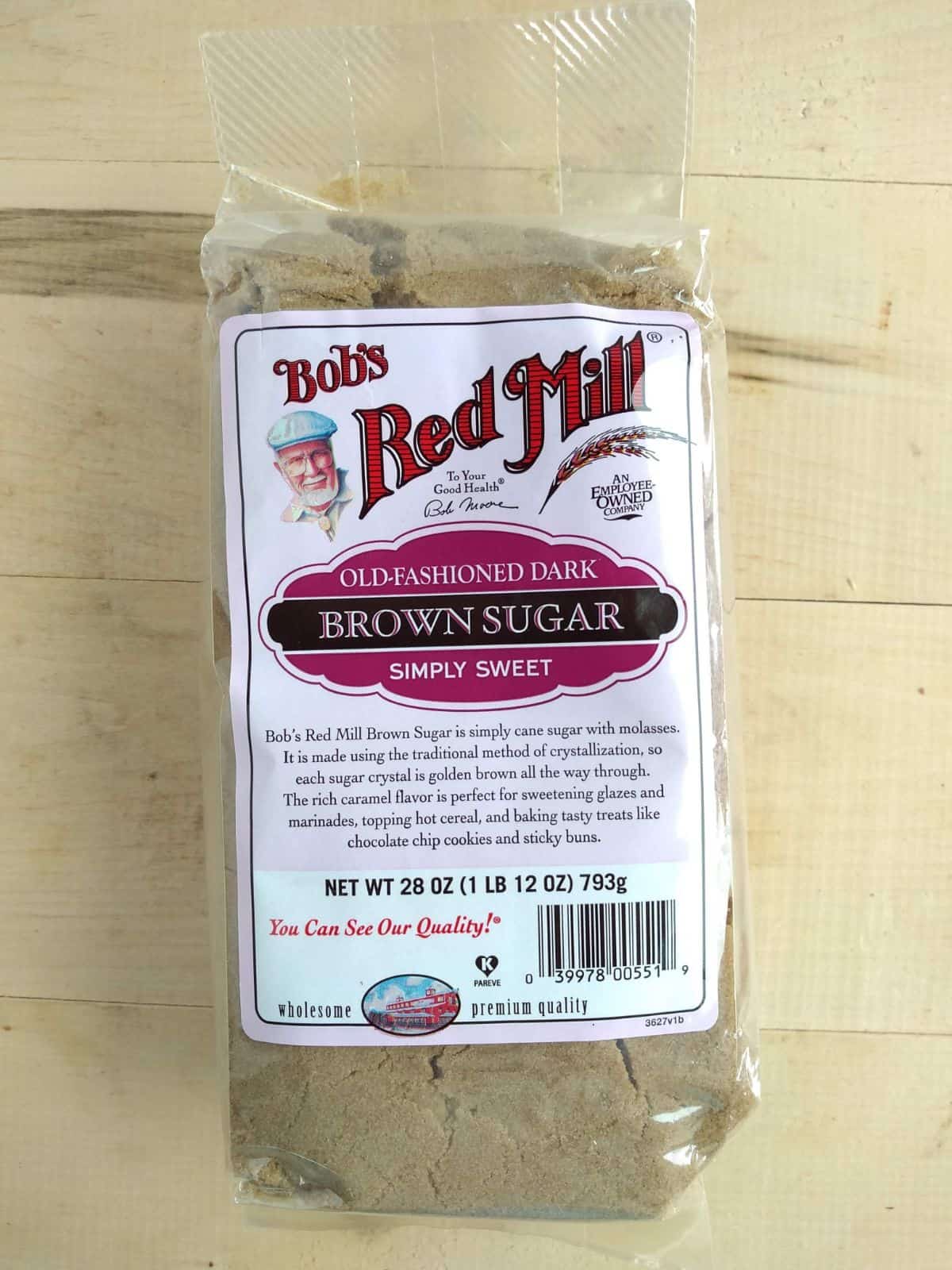
🟤 Brown Sugar
Is brown sugar made from cane sugar or beet sugar? You can find both options in some stores with beet sugar being easier to find. I would assume it's made with beet sugar unless the packaging says otherwise.
You can always buy cane sugar and mix it with molasses in your food processor. Due note that molasses can be made from cane sugar or beet sugar, so you would need to know the source if you are only trying to use cane sugar.
Learn about a more natural type of brown sugar called Muscovado Sugar.
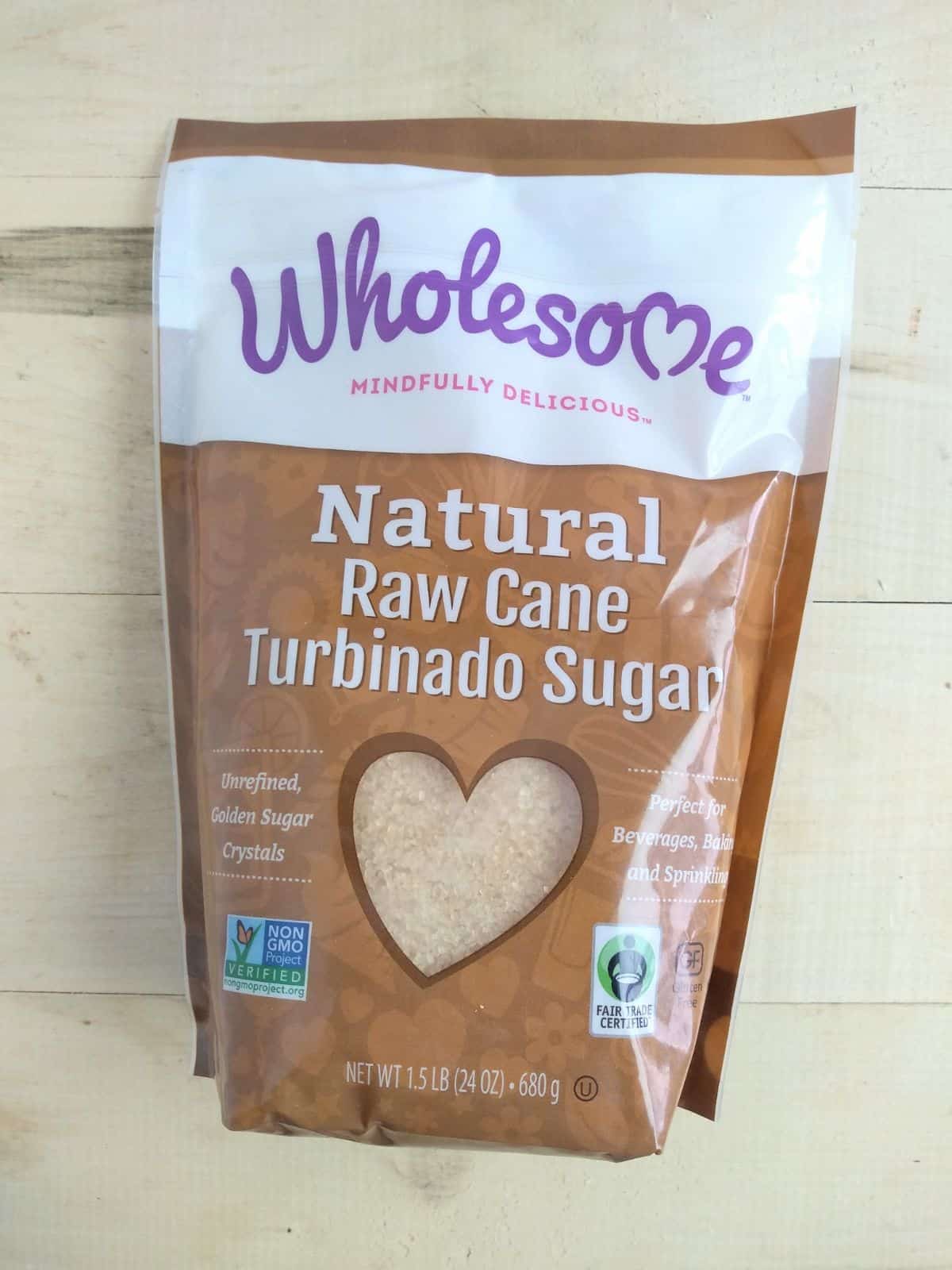
🧁 Turbinado Sugar
This type of sugar is always made from sugar cane. The refining process is less than white cane sugar and has a coarser texture. I love it on top of baked goods as it doesn't melt in the oven and adds a nice crunch.
Interested in learning about the history of sugar? A great piece of recommended reading is "Sugar Changed the World: A Story of Magic, Spice, Slavery, Freedom, and Science". The book will show you how something simple as sugar that we take for granted has had a huge impact on the lives of many people throughout history.
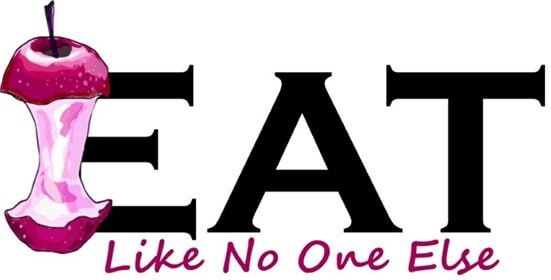

James J. Mallett
So, I am just guessing but i tend to think that cane sigar is better for you then beet sugar......am i correct? TY! I like your site. James J Mallett
Nancy
I am.allergic to beet sugar. Not cane sugar. Wish there was more info on this matter.